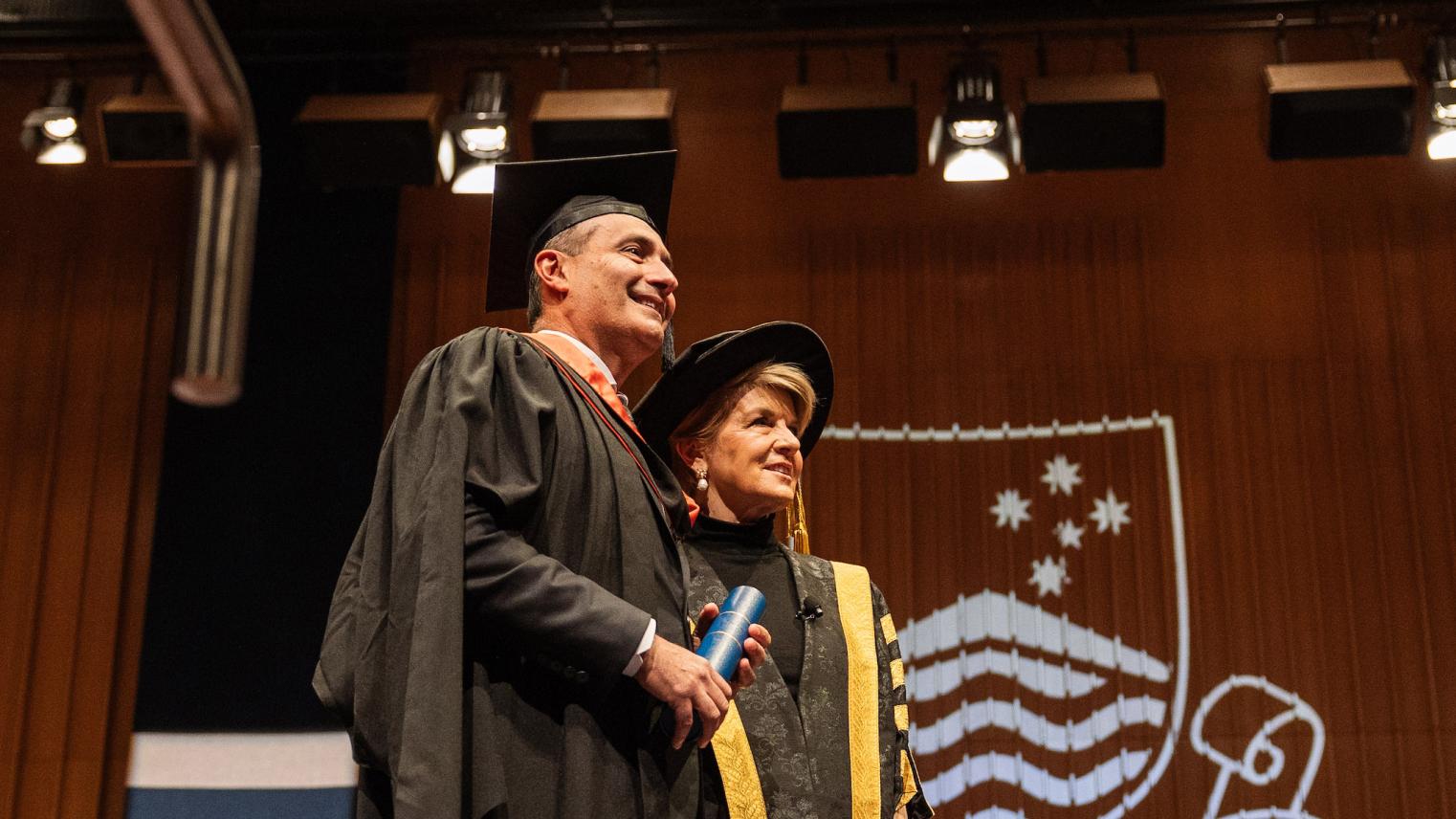'RegNet ought to be considered by all': Master of Regulation and Governance graduate Steven Karras

In July, 2023, Steven Karras graduated with a Master of Regulation and Governance from the School of Regulation and Global Governance (RegNet) at the Australian National University. He shares with us his rewarding experience from studying at the ANU College of Asia and the Pacific (CAP).
Why did you want to do a Master of Regulation and Governance at RegNet?
I had undertaken some really significant public service work for the Australian community - some with transnational, regional and global impacts. Law and business disciplines helped me achieve that, but I felt that although I led the work, a lot of it was managing the tasks that people did. That is important, yes. But to really lead people - and let’s just say, a few people through some difficult environments, as well as have them come together to manage issues, solve problems and just deliver on some big public policy - I felt I needed to understand how I could do that better.
After scouring courses and a lot of reflection, I realised that as a pragmatic type person, I needed some skills to persuade and influence people and shape the right behaviours to just get stuff done. That is code for regulation and governance, by the way. A lot of the language in the public service, like 'governance', is bandied around but it is an umbrella term covering a lot of things. So that one click on 'RegNet' changed everything.
What was your experience at CAP like? How did this help you achieve your career goals?
I experienced a school and teaching staff that closely worked with government, industry and a wide range of civil society actors in real and practical terms, which gave credibility to their insights. They were also not just student focussed, but really interested in what each one of us did, and I think that drove subject matter that was relevant and could be practically applied. I got to introduce strategies that were contemporary and responsive in my regulation work, and apply effort in anticipatory and adaptive ways with stakeholders to not just deal with real-time issues but also plausible futures. The theory and methods were applied to contexts as broad as social cohesion, people who were the subject of terror-related offences, incarceration settings, and integrity and misconduct work.
Who has helped or inspired you?
For fear of missing someone, it is hard to name who helped me the most. But I will answer it this way: I benefitted from cutting edge thinking in compliance and defiance behaviour work; risk, reward and resilience frameworks; restorative justice; global governance; policy persuasion; or through health/justice partnership clinics. The list goes on.
I will call out someone because when faced with a possible cancelled course of interest (Criminology as it relates to regulation), Professor Kate Henne offered to continue with it and me as a special topic. Daunted by the fact that I was not particularly scholarly - and that it would be 12 by 2-hour weekly sessions of intellectual discussions with a Professor, delving deep into a range of things - it was one of the best learning experiences I had undertaken. It was aided by a third class mate, Franz who attended as a course monitor but ended up contributing enormously. This is an example of why CAP and RegNet ought to be considered by all, budding senior executive or not.
What are you currently working on? What are your plans now that you’ve finished your Master’s?
You never really know you need a decent break until it is thrust upon you. My previous degrees, and earliest one - law - was done when I undertook shift work as a police officer with young children. So, never having the luxury of studying full-time, I decided to finish this Master's as a student. It also gave me time to reflect on what I found important, and I keep coming back to delivering public policy objectives that have big impacts on the widest of our Australian society, and helping the most vulnerable in our community. Stay tuned.
What is a piece of advice you would give to those studying a Master of Regulation and Governance?
Pursue the learning in ways that are etched in your mind, and that is done by pacing your study and applying it to contexts and environments that resonate with you. It is this approach that gives you purpose and that is more important than just letters after your name.
Learn more about RegNet's Master of Regulation and Governance here.